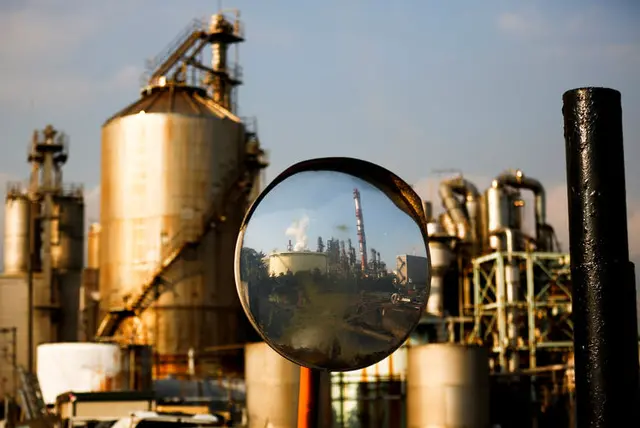Japan’s industrial production edged up in April, data showed Tuesday, despite factory shutdowns sparked by a pair of deadly earthquakes that rocked southern Kyushu.
Official figures also showed household spending remained tepid, as Prime Minister Shinzo Abe mulls whether to delay a sales tax hike over fears it could damage the fragile economy.
Inflation data last week showed consumer prices fell for a second straight month, the latest in a series of blows for the prime minister’s faltering growth plan, dubbed Abenomics.
Abe reportedly intends to delay a rise in sales tax, from 8 to 10 percent, until October 2019 instead of pushing it through in April next year as planned.
The prime minister is expected to make an official announcement on Wednesday.
The higher levy is seen as crucial for helping to pay down the nation’s debt load, one of the largest among rich nations.
But a consumption tax rise in 2014 — Japan’s first since the late 1990’s — pushed the world’s No. 3 economy into a brief recession.
On Tuesday, data showed Japan’s factory output in April edged up by 0.3 percent from a month earlier, beating market forecasts for a 1.5 percent decline.
Earthquakes in southern Japan last month forced the temporary closure of some regional factories, including those operated by Toyota and other major firms.
The world’s top automaker saw its domestic production fall 20 percent last month.
Separate data, also released Tuesday, showed the job market remained tight, with the unemployment rate at 3.2 percent.
The figures come several days after Group of Seven talks hosted by Japan wrapped up with Abe warning that the world economy risks a crisis on the scale of the 2008 collapse of Lehman Brothers.
Abe has said his government will only push back the tax hike in the event of “a grave situation” as disastrous as Lehman’s disintegration at the start of the global financial crisis or a major earthquake.
Many observers — and some of Abe’s G-7 counterparts — were not convinced the global economy was facing such a severe shock, seeing Abe’s comment as instead intended to justify delaying the tax hike.
“The risk is definitely not on the scale of Lehman Brothers’ collapse,” said Shunpei Fujita, an economist at Mitsubishi UFJ Research and Consulting. “But it is true that the Japanese economy is weak, and a sales tax hike would surely slow it further.”
Critics of delaying the levy hike say Japan must tame its soaring debts and figure out new ways to pay for the ballooning cost of welfare as the population ages.
Government coffers are deep in the red, with public debt standing at twice the size of the economy — the worst among industrialized economies.
(THE YOMIURI SHIMBUN)
 简体中文
简体中文

